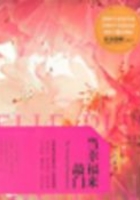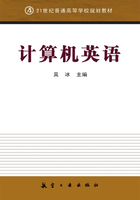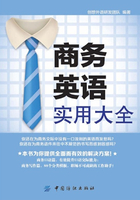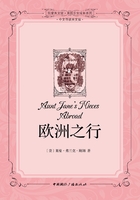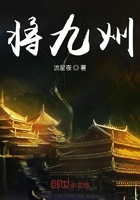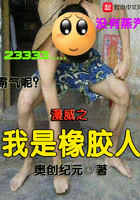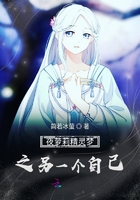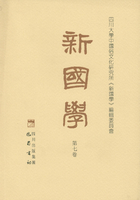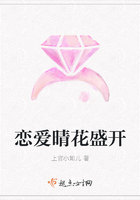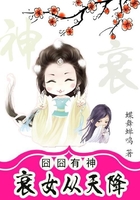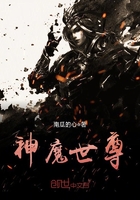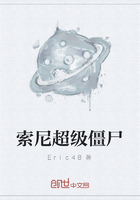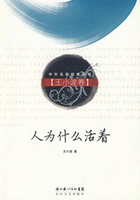1
To leave Pu Village was Dhajee's most burning desire. She didn't hold out much hope of getting along with her uncle like father and daughter. Because of her temperament, she couldn't confide in anyone, even the members of her family with whom she had lived for almost two decades. How could she confide in an uncle she only saw once or twice a year?
Dhajee and Uncle Tsering reached Da Village at the foot of the mountain. They didn't talk to each other along the way. Da Village was much larger than Pu Village. It wasn't tightly enclosed by mountains and its houses were not scattered irregularly on the hillside; instead, they were well-arranged on a level plain and there were far more trees around them.
Uncle Tsering led her to a very large house. The door was open but he didn't go straight in. He called twice, rousing bursts of barking. A man of about the same age as him came out and they greeted each other. Dhajee followed behind her uncle, looking around curiously like a little girl. There was a courtyard behind the gate in which several cows, mules and horses lived. A black dog barked at them constantly, jumping up and down and trying to free itself to rush over. After passing through the middle door she saw a tightly-covered old walking tractor in the courtyard and a commodious balcony behind two mud stairs. Five or six people were working on the balcony. A girl of about Dhajee's age sat at a weaving machine weaving pulu, an old woman was gathering wool beside the machine and a young man was tanning fur. A middle-aged man was sewing a goatskin quilt nearby. When Dhajee and her uncle walked into the courtyard, the woman stood up quickly and greeted them with a broad smile. The girl stopped weaving and went to fetch bowls. She wiped them on the lining of her apron and poured out highland barley wine for Uncle Tsering and light tea with a big piece of yak butter for Dhajee.
The man who opened the door was obviously the head of the family. He asked the two women to continue serving wine and tea, took a home-made cushion and sat beside Uncle Tsering to drink with him. “You're a rare visitor,” the old woman said, “.We haven't seen you since my sister passed away. You live out there all alone. We worried about you very much. If you got ill, there would be no one to look after you. We wanted to send you a kid but we were afraid that people would say we were just after your money.” She became choked with sobs.
“What do I have?” he replied. “I'm just an old man with a shabby house.”
At Ama Chozom's home Uncle Tsering was a guest with a superiority complex, while at his relative's home in Da Village he was a guest who was willing to lower himself and was always stunned by the courteous reception.
“I wouldn't be worried if everyone thought so,” the old woman replied, “But nowadays people all have bees in their heads!”
“Leave them alone,” the family head said reproachfully. “Just mind our own business. We merely need to have a clear conscience. Bring more wine!”
At the mention of conscience, Uncle Tsering bubbled over. He told them of his visit to Dhajee's family in Pu Village. “It's really hard for Ama Chozom to bring up three kids on her own,” the old woman and the family head chimed in, “You should visit and help her as often as you can. Few people are as conscientious as you.”
To make the family's predicament clear, Uncle Tsering even told them how many pans, bowls and quilts they had. Most intolerable of all, he vividly described how her brother Norbu Tenzin had married into Blacksmith Tashi's family. Upon hearing of such behavior that went totally against their customs, the family head and the old woman seemed to be filled with emotion. They talked endlessly. Dhajee was disgusted with her uncle. He gushed about the story, seemingly to curry more favor with them, but then he told them he had adopted Dhajee from Ama Chozom and a dramatic change occurred. The old woman's face froze. When the girl on the weaving machine came to fill Tsering's wine bowl, the old woman lost her temper and glared at her. “Go and weave pulu. I'm here!”she snapped. The girl seemed very puzzled.
A little while later, the old woman burst into tears and said that seeing Tsering brought memories of her poor elder sister. “She always begrudged eating too luxuriously and wearing overly expensive clothes. She seemed to spend her life weaving but she never wore anything beautiful. She was always so industrious and laborious in running your home, but she passed away before she had a chance to enjoy her life...”
The old woman's words made Uncle Tsering uncomfortable. After a short silence, the family head scolded the weeping old woman and asked her to pour the tea and wine. Sensitive Dhajee realized that she had unintentionally become the enemy of the old woman's family. This made her feel a little sympathy for her uncle. When they said goodbye, she deliberately held his hand as though she were demonstrating something to the family. However, the unprecedented intimacy shocked Uncle Tsering. He refused Dhajee's expression of alliance and lightly shook her hand off. The old woman kept saying formulas expressionlessly while her eyes focused elsewhere. Several young people on the balcony symbolically lifted up their hips while the family head saw them off at the village entrance.
After leaving Da Village, Uncle Tsering's brow remained furrowed and he frequently sighed as they walked. Even taciturn Dhajee couldn't retain her composure and tried to draw him into conversation. “How far is it to Senke Village?” she asked. He turned around and examined her face for a while before replying grumpily, “We'll be there soon if we can hitch a ride.”
Dhajee was taken aback by her Uncle Tsering's attitude. She really wanted to ask him why. He had employed all his skills to ingratiate the old woman, and now he suddenly turned hostile towards his own niece. She swallowed the words on the tip of her tongue. There was a long way for them to go together. However, she consoled herself, the flames of fury were burning in her heart. The more she considered it, the angrier she grew. I haven't eaten even a mouthful of his rice, she thought. Why is he so furious? When we live together, how can I live a happy life? I'd better seize the opportunity to escape from Pu Village anyway and take a chance in the big city…
Freight trucks constantly roared past along the road, scaring Dhajee so much that she jumped down and walked in the roadside ditch. Uncle Tsering was used to them. He walked in the middle of the road. Whenever he saw a truck, he would stretch out his hands to try to get it to stop but it would just drive past. However, he didn't care when they failed to stop and just kept on doing the same thing as though it were a matter of responsibility. Dhajee quickly learned not to try and talk with him. She walked ahead by herself.
With a sudden creak, a half-new Dongfeng truck stopped in front of them. A white face craned out from the cab and shouted at them. The driver growled more fiercely as they ran towards him. Dhajee could judge from his furious face and gestures that the driver didn't plan to take them at all. He was just angry with her uncle for walking in the middle of the road and getting in his way. However, Uncle Tsering seemed not to hear his curses. He gave the driver a thumb up and said, “Karton County, Karton County.” Then he pointed at Dhajee, at himself and at the truck box. The driver slammed the door and began to start the truck. Uncle Tsering immediately grasped the door tightly. The driver became anxious. At that point, a man who had been sleeping in the passenger seat woke up with an inquiring expression in his eyes. Now Uncle Tsering said to that man, “Please, please, Karton County,” and again he pointed at Dhajee, himself and the truck box. At last, the man seemed to understand. He pointed at the truck box with his thumb. Uncle Tsering and Dhajee finally took a free ride.
Before they had time to sit down properly, the truck started. Uncle Tsering staggered in the truck box and his sweat-soaked hat flew off. Fortunately, Dhajee was quite nimble and caught it at a stroke. Without his hat, a head of sparse gray hair was exposed. The sight made Dhajee sad and her grievance with him vanished immediately.
Dhajee had passed Karton County one night a few years ago when she came to work in the city. Without electricity for lights, Karton City in darkness had left no impression on her. She had imagined tall houses, numerous shops, cars and people rushing to and fro, but the reality let her down. Karton City stood beside the road where the truck stopped. The road was flanked by orderly-arranged bungalows, some of which were shops and teahouses in which people drank tea and ate Tibetan noodles at their leisure.
With a small bag on her back, Dhajee looked around and was gradually left far behind. A tea customer who had been flirting with the serving girl spotted her and invited her to have some tea with him. The girl serving the tea wasn't wearing a cumbersome Tibetan pulu but a pair of jeans like the ones Dhajee remembered from the city. Their narrow legs highlighted her round butt. Her face was powdered thickly in an attempt to cover her tanned skin, but it still showed up under the thick white. It was just like painting a mud wall with lime: white over black.
Were it not for a large area of cropland, Senke Village would have been connected with the county town. Past the bungalows beside the road and across the cropland, the Village waited. Dhajee tried to guess which house was Uncle Tsering's. She didn't expect it to be too luxurious, as her uncle had a very small family, but neither did she think it would it be shabby; it was said that her uncle's departed wife came from a very rich family.
2
Senke was almost three times larger than Pu Village and the rows of trees along the road made it appear much brighter. Pu Village was usually very busy during the period between autumn harvest and spring ploughing when the villagers all surged towards the entrance, basking, knitting wool, drinking and chatting. Upon entering Senke Village, Dhajee saw a totally different scene. Except for a few children, there was hardly anyone around. Cattle were eating hay soaked in the distillers' grain juice in front of the doors. They swayed their tails with the lazy motion of the auspicious cloths floating in the breeze from the door of each house.
When Uncle Tsering approached, one old cow stopped grazing and swayed her tail. She tried to break her tether to walk towards him but failed after several attempts. Tsering immediately threw his bag to Dhajee and touched her back tenderly to calm her.
A mother and daughter lived next door. They kept Tsering's key and helped take care of his livestock when he went to visit Dhajee's family. The daughter happened to see him coming back as she went out to feed the cow. She became very excited, as though she were seeing her own relative. She approached him quickly but her eyes were fixed on Dhajee. Similarly, Dhajee couldn't tear her gaze from the girl, but she was staring at her lightweight black Tibetan robe and gold earrings inlayed with kallaite. That's how an urban woman should be, Dhajee thought in admiration.
After a while, the girl's mother came with a pot of hot tea in hand.She casually opened Tsering's cupboard and took out the teacups while asking him about his journey. It was obvious that they had a rather good relationship. “This is my deceased brother's daughter,”he told them. He didn't tell them that he had adopted Dhajee, perhaps because he wanted to avoid another embarrassing situation like the one they encountered in Da Village. Although this made Dhajee a little uncomfortable, in her heart she expected to establish her status in this family.
Uncle Tsering's introduction didn't satisfy the mother and daughter's curiosity. They fooled round the stump, trying to make clear who on earth Dhajee was, but Uncle Tsering evaded them skillfully. Dhajee felt as though she understood the situation. She opened the cupboard to fetch teacups for the mother and daughter while warmly inviting them to take a seat, but her uncle asked her to sit down and rest. He said he was afraid she might be careless and break the cups. His excuse was so unconvincing that no one believed it. “Do as your uncle says and have a rest, good girl,” said the woman, giving embarrassed Dhajee an out.
When the mother and daughter left, Dhajee finally had a chance to look around the house. It was large. The courtyard alone was larger than her mother's house. There was even a glass window in the tearoom, which consoled and excited Dhajee a great deal. She suddenly felt very happy. She had unexpectedly fallen into the life she had yearned for so long. In Pu Village, only Blacksmith Tashi and the Chamsu Family had small glass windows. The others either opened a skylight or a hole in the wall that they covered with a ragged jute bag at night, or on rainy or windy days.
The mother and daughter invited Uncle Tsering and Dhajee to dinner twice, but he declined both invitations. His face had been stony since they left Da Village. Dhajee dared not speak out of turn.She just wanted to find something to do. As soon as she picked up a broom, her uncle said, “Sweep now? It's almost dark! How could you not know this at your age?” Uncle Tsering was referring to the traditional belief that sweeping after sunset sweeps good fortune out. Dhajee was depressed. No matter what she did, it seemed to make her uncle angry.
They were going to sleep after a simple dinner and Uncle Tsering had to find a quilt for Dhajee in the storehouse. The moment they entered, the smell of grain and air-dried meat assaulted their noses. It was dark inside, as the skylight was covered with a flagstone. Tsering asked Dhajee to light a candle. As the storehouse became illuminated, she was stunned by what she saw. Bags of grain were piled up along the left wall with three buckets of rapeseed oil, and along the right wall there were layers upon layers of woolen quilts, blankets and pulu. Dhajee recalled what the old woman in Da Village had said: my sister seemed to spend her life weaving but she never wore any beautiful clothes. It turned out that they were all stored here. Two goat forelegs hung from the ceiling, their hooves wrapped in white wool. Dhajee lifted the candle and found that the fat had rotted and turned yellow.
“What are you looking at?” Uncle Tsering snapped. He was a little angry. He pulled a quilt and a blanket out of the pile and quickly left the storehouse. She hurried after him.
Dhajee slipped naked into the new quilt. Soft, warm wool touched her skin from her shoulders to her feet. The family had one or two good quilts back in Pu Village, but they were her mother's treasures and she never let her children touch them. The quilts they used were very shabby with layers of patches. She could hardly feel any warmth lying under them. Now, she couldn't help burying her head in the quilt to smell the wool.
Dhajee's large room had a glass window through which she could gaze into the starry sky and imagine her bright future. When dawn came, she dreamt that she had returned Pu Village and lots of people were striving to see her beautiful Tibetan costume. At that moment, her uncle's sister-in-law rushed out and chased after her with a pair of scissors, trying to cut her new clothes to pieces. The moment the woman caught her, she woke up. It was late in the morning. Hearing her uncle yelling at the livestock in the courtyard outside, Dhajee immediately jumped up from the bed and went to prepare tea.
“Why don't you get some more sleep?” her uncle asked. “You walked so far yesterday. You must be very tired.” He seemed to have forgotten what happened in Da Village and to have become genial and gentle overnight.
“I get up very early at home,” Dhajee replied quickly. “I would usually be finished collecting dung by this time.” After a pause, she repeated, “It's true. I get up very early at home,” for fear that he might not believe her.
“Every peasant gets up early to work in their fields,” her uncle smiled. His trust in her almost moved her to tears. She didn't have a father. Maybe this is what a father is like, she thought
No matter how often Dhajee had felt wronged before, time finally vindicated her. She became familiar with all the housework in just a few days. She got up early in the morning to prepare her uncle's butter tea. The amounts of yak butter and salt were exactly to his taste. She would place the tea on his bedside table before he got up.
After his wife passed away, Uncle Tsering got used to living alone, but there was no one to look after him when he fell ill. Although the woman and her daughter next door always came to help, he felt it improper. After all, they weren't family. On top of that, gossip and rumours about them spread throughout the village. However, everything changed after Dhajee came: a bowl of hot butter tea and a warm, clean house. Dhajee took very good care of him and the family. He liked nothing better than to chant sutras attentively and he soon became accustomed to having Dhajee bustling busily around him while he did so.
3
Senke Village was adjacent to the Karton county town, but not a part of it. They both had their own characteristics. Located on the road to Lhasa and Zhang County, the Karton county town was ablaze with lights at night. The bungalows on both sides of the road were the luminous pearls of the county town and various indefinable smells drifted from their open doors. The crowds and passing vehicles made it even more lively than in the daytime. Although the county town was very small—an hour would be enough to tour around it—it was considerably attractive.
At the same time, each and every home in neighbouring Senke Village was brightly lit with candles. Families sat around their stoves sharing the food in the pot. The kids of Senke Village were obsessed with the skylight-sized TV set in the meeting room of the County Government Offce, but even the shrewdest kid found it hard to watch it for more than ten minutes. No one there allowed them to;they were usually driven out brutally with a kick to the buttocks. The men and women of Senke Village also liked the county town because they could find almost anything there. However, those things required money and that was what Senke Village lacked most. Although Senke villagers did not frequent the county town, they endeavored to involve themselves in such prosperity.
Few people could make money in the county town, but each family's every coin would be spent there whether it had been earned there or not. After the autumn harvest, villagers could be found in various shops in the county town. The elderly always found it hard to choose between the colourful and variously-sized yarns;this would be needed for weaving pulus, while that was suitable for knitting aprons, but they couldn't afford both because every coin was already accounted for. Weighing and balancing again and again, they reluctantly took out the warm bills from their underwear. They bought the yarn to keep their daughters and daughters-in-law busy weaving.
Generally, women and girls didn't have much money, but that never stopped them from strolling around the county town. In fact, they went there most often. Half a day would pass unawares while they were curious about this and attracted by that. The eye-catching hair-bands and blouses were like giant magnets. This wonderful scene made them forget what the elderly had told them before they left. They were not necessarily looking to buy any of these things; just feeling the novelties in their hands, asking about the prices and discussing it with friends would satisfy them perfectly. However, there were some daughters-in-law who couldn't resist the temptation. They didn't have much money, but with the help of their husbands they could take a little bag of highland barley with them secretly and exchange it for new blouses. To their surprise, their mothers-in-law saw through this trick at a glance and became so angry they spoke ill of them to everyone they met. Once the rumours got started, these daughters-in-law immediately became examples of bad moral influence.
Except during school time, you could always find kids around the county town. Some lent a hand in the busy teahouses or helped shopkeepers to unload their wares. Aside from earning some money, they also had the chance to eat things they had never tried. However, the shopkeepers didn't unload every day and the teahouses weren't busy all the time, leaving the kids no choice but to turn their attention to their own storehouses. Just as the daughters-in-law did, they removed some highland barley on the sly and exchanged it for candy or noodles, while the older kids were more willing to exchange it for cigarettes and mimic the way adults smoked. If their fathers caught them, a scolding and a beating were inevitable. Hence, the locks of storehouses were indispensable for families with kids.
The kids of Senke Village needed more than the kids of Pu Village. In addition to candy, they wanted video shows as well. Many kids stole grain from home and gave it to the doorkeeper of the video hall. They spent happy moments there in the company of the Monkey King, then went home to take a beating from their fathers.
The older men of Senke Village seldom strolled around the county town except to buy fertilizer, but the young bachelors of marriageable age spent most of their time hanging out and drinking there. Obsessed with the women in make-up and their dissolute voices, they even stole the money that their families were reluctant to use just to buy a bucket of unpalatable highland barley wine, and left buckets of delicious wine turning bad at home. They never exchanged grain for wine, because they thought it embarrassing.
Dhajee first heard of the county town when she was living in Pu Village. People described it as a paradise. However, the Senke villagers disagreed. They tended to consider it better to live far away from the town. That way they could at least keep their money for a longer time before spending it. Despite that, they spent most of their time lingering there, and so did Dhajee. She was seduced by the colours and the bustle. She thought living near the county town made her noble.
The Karton county town owed its prosperity in some degree to the people of Senke Village. They were the best customers for such specialties as eggs, quark, yoghurt and even highland barley wine. Both the shopkeepers and the villagers knew that the money they earned would be spent in the county town before long. “It is the poor sanitation in Senke Village that drives the money away,” the villagers joked.
It was kept a secret that Dhajee had been adopted, and the mother and daughter next door still treated her with the hospitality appropriate to a relative. When she finished the work at hand, the daughter Kelsang would take her to the county town to sell milk. She went there to sell milk every day. She was a bold and vigorous girl who could speak a little Mandarin. Due to the friendly relations between her and the Han cadres in the County, she sold out effortlessly every day. Seeing Kelsang make money so easily, Dhajee got the itch to do the same business herself. “Uncle, I want to sell milk too,” she told him, trying to sound him out.
“Kelsang has been selling milk for a long time,” he replied. “If we start to sell milk at this point, her business might be affected. We'd better save it for ourselves.”
“If only I could sell it for money,” Dhajee murmured. “It is too much for us, after all.” She was aware that she had no voice in the family.
4
There was yet one more difference between Senke Village and Pu Village. The mountains by Senke stretched away consecutively into the distance and formed a natural barrier rather than encircling the village. The Karcho Canal flowed through the mountains and brought the village its water. The villagers had no reason to fret about droughts and dry seasons. In fact, they used the dry season in early winter to repair the canal.
Karcho Canal was built in the 1960s by a workforce of thousands. Thanks to the absence of jerry-built projects at the time and the care taken by the County Government, Karcho Canal was still playing its role effectively after almost thirty years. Since the County Government was located at Senke, any water convergence investment policies were inevitably beneficial to the village. Thus, the dam had been regularly strengthened with cement in recent years. After the autumn harvest, the remaining compulsory labour was the mere dredging to which the Village Head attached great importance. She did a headcount and grouped the villagers, then carefully assigned tasks to each group along the dam. The villagers stuck together in fives and sixes looking at each other; no one wanted to go down there.
With lunch and water on her back and a pair of waders under her armpit, Dhajee supported her jaw with a shovel handle. Her eyes roamed around the strange and familiar people. Since the day she stepped into her uncle's house, the villagers had inquired about her background in many ways. They even found out that she was Tsering's adopted daughter and that she was going to settle down there. Dhajee had no idea about this, but something was confusing her: the mother and daughter next door had not spent time with her for several days. She sometimes ran into Kelsang when she went to feed the animals or fetch water, but Kelsang just smiled and nodded at her.
The night before, her uncle had expressly asked Kelsang to wake Dhajee up the following morning. Kelsang had not shown up. Dhajee arrived at the designated place only to find Kelsang laughing and chatting with her friends and ignoring her. At the sight of this, Dhajee suddenly felt a towering rage. She stood far away from Kelsang on purpose and didn't speak to her. The old woman in Da Village hates me because she's afraid I'll get her sister's property, Dhajee thought to herself, but you're not bonded to my uncle by any ties. Why should you hate me?
It was true that there were no ties between them, but the two families had been on bad terms when Tsering's wife was alive. They frequently quarreled over trivial things. The woman next door called Tsering's wife a hen that can't lay eggs, and she called her a slut who threw herself on any man she met. They even went to see the Village Head to ask her to decide who was right. When Tsering's wife died, she cried her heart out as though she felt responsible. Apart from lighting butter lamps for confession, she also helped Tsering make arrangements for the funeral. After that, the two families became as close as relatives. Some bigmouths spread the rumour that he and the woman were going to bond together in a new family. Just as everyone was expecting this happy ending to the story, along came Dhajee and changed everything. The mother and daughter next door had apparently realized that things would not now develop the way they wanted, hence the sudden distance and frostiness they showed her. Dhajee longed to talk to the villagers. She knew that people were looking her up and down. Every time she was about to smile at someone who seemed friendly, they hastily looked away.
At that moment, all of Dhajee's conjecture and unease was eclipsed by the work song that the working men were singing down in the canal. They shovelled the sludge up onto the dam where another group of men piled it up. In a lull in the song, a big-bearded man decided to sing on with lyrics of his own:
Beautiful woman,
Where is your hometown?
What is your name?
What is your age?
Spontaneous hilarity broke out as soon as he finished. Everyone looked at Dhajee simultaneously. She had no idea about what was going on. Seeing everyone staring at her, she instinctively wiped her face. The big-bearded man continued:
That girl looking around over there is the one of whom I sing, The one with big eyes and a red headscarf…
Dhajee finally realized she was the one in the song. She cleared her throat and sang:
Big-bearded,
My name is Dhajee.
No wonder you don't know me.
I'm from far-off Pu Village.
The crowd burst into laughter again. Dhajee amused them by calling him “big-bearded” and they were beginning to warm to her. Men began to call to her flirtatiously. Kelsang was not pleased to see a situation favourable to Dhajee. She replied in full-throated song:
Big-bearded,
You appear to be brave and strong,
And yet you behave giddily.
Wherever this girl comes from
is none of your damn business!
She emphasised the “damn” so heavily that it sounded extremely vulgar. The big-bearded man found it interesting to have someone act against him. He sang spontaneously:
Listen to me, Kelsang.
My wife is at home.
What are you jealous of?
This roused the spectators. Some of them even whistled viciously. They couldn't wait to see what would happen next.
Kelsang had been born out of wedlock, and subsequently no one had been willing to act as a matchmaker for her mother. As time went by, her mother's youth faded away and wrinkles appeared on her forehead. Without a father, Kelsang didn't grow into a petite and adorable girl. Instead, she was tall, strong, good-looking and even better than the men at heavy work. Just like her mother, she was too stubborn to be controlled once she was angry. Now she was in her twenties and no one had proposed to her either. It was a taboo for Kelsang to talk about marriage. The big-bearded man had not said it directly, but his words implied that Kelsang was too headstrong and diffcult to be a wife.
Kelsang flew into a rage. She pointed her finger at the big-bearded man and shouted, “You bastard! I can get married whenever I like! It's just you nasty guys make me sick!”
Instead of getting angry, the big-bearded man continued to sing:
Hey, Kelsang,
Don't be pissed off.
Your have a great figure
And a good-looking face.
How could anyone fail to fancy you?
The offcials in town have been into you long since!
The crowd burst into laughter again. It was an open secret around the village that Kelsang watered down her milk in order to earn more money. Since her old regular customers had stopped buying from her, she had no choice but sell her milk to offcials from door to door. The villagers called her “Benbola”[1]behind her back. The fierce battle of tongues between the big-bearded man and Kelsang had made everyone forget Dhajee.
During lunchtime, people sat and ate in threes or fours. Dhajee didn't know anyone. Now, the big-bearded man called, “Dhajee! Come here!” She walked over to his group, unsure whether they meant her any mischief. One ingenuous young man among them leaned to one side and let Dhajee sit beside him. Seeing this, the big-bearded man and the others teased him and called him “ill-intended”. The young man immediately blushed.
The hearty lunch that was served surprised Dhajee. In Pu Village, the collective labour lunches were almost the same as the ones they had at home. Besides tsampa and tea, one or two baked pancakes may be added at most. She boiled some eggs, baked a pancake and fried a bowl of potatoes in the morning as requested by her uncle. She felt it was too large a lunch, and never imagined that it would turn out to be frugal in comparison with the lunches of others. Maybe it was because her surroundings had changed or because she wanted to be liked and accepted, but Dhajee talked merrily with the men and giggled like a little girl. Kelsang couldn't bear to see her getting along so well with the villagers. “Have you ever heard of Pu Village?” she asked. “I heard it's so inaccessible, even birds can't get there. They depend on rain for their harvests. Some of them can't make a living there anymore and they come here”.
“That's nonsense. How could that be?” said a woman who had just married a man from Senke Village. Having voiced her dissatisfaction, she took her wood basket and left.
“She doesn't look like she's from a remote village,” said a man.
“But she IS from an out-of-the-way place,” Kelsang insisted. “Anyway, Uncle Tsering is a fool. I didn't see any of his relatives show up for his wife's funeral. But now a so-called niece is here to get everything for nothing.”
Kelsang regretted quarrelling with the big-bearded man. No one was taking her seriously now. She threw tsampa into her month and chewed it angrily.
“Really? She's from Pu Village?”an old woman asked Kelsang in a low voice, as though Dhajee had profited at her expense. “That place is known for its poverty. She's probably in heaven here.”
“Sure she is!” Kelsang agreed enthusiastically. “There's no one to depend on when you're poor, but make a little money and relatives pop up out of nowhere! People like that will suffer for their karma.”
“But as his adopted daughter, it's her duty to support him in the future,” a man disagreed. “It's only fair if she lives off him now.”
“Fair?” Kelsang snapped back angrily. “Humph! I suggest you go and live off him too. Look at her giggling in a group of men! She can't be a decent girl.” Kelsang said this last remark in a low voice;even she thought it was a bit too much.
Unceasing laughter rang out, drawing people to join the big-bearded man's group. The afternoon's work was light. Dhajee had become familiar with many villagers and started to joke with them. After a while, someone started singing the working song again. More and more voices joined in until the song flowed like turbulent waves, rushed like wind and scudding clouds and echoed across the boundless sky.
5
How time flew! Soon, the Tibetan New Year was approaching and Dhajee found it incredible that she had been living with her uncle for three months without a single argument and barely a disagreement. She heard footsteps and Kelsang's voice outside while she was recalling the day she had left Pu Village. They have guests, she thought. Just then, there was a heavy knock at her door. She removed the bar to see her uncle's sister-in-law standing there with a wood basket on her back next to her daughter. The old woman stared at Dhajee strangely. “Who will close the door in the daytime?”she murmured as she strode uninvited into the room. Unlike her mother, the daughter wore a smile.
Uncle Tsering stopped chanting ure and hurried out to usher them into the big room with the glass windows. He asked Dhajee to serve tea. The old woman sat down and pulled the wood basket closer for fear that someone would touch it. Her eyes were scanning every corner of the room. When Dhajee took the teapot in, she started scanning her. “You've gained some weight, haven't you? You've got roses in your cheeks. You must be eating well. I can tell from your face. Don't you think so, Tsering?”
Her expression changed when she spoke to Uncle Tsering. He simply smiled and did not reply.
“Well, it's better here than where you came from, right? There's plenty of food here.”
Dhajee knew exactly what the old woman meant. “We also had enough food,” she replied.
“But does it compare to the food here? I went to Pu Village when I was young. Besides tsampa, tea and tasteless highland barley wine, what else do you have? Chamsula is the richest there, but even their house is not as good as your uncle's. A lot of families run out of food in the early spring. What bitter days!” the old woman said emotionally in a squeaky voice.
Dhajee knew exactly what this old woman was trying to express. The more she defended her hometown, the more the old woman would antagonise her. So this time she just smiled. As she expected, the old woman stopped arguing.
“So why have you come to see me today?” Uncle Tsering asked.
“I've been thinking of visiting you for a long time but I was too busy with the farm work, so today I've come especially to see you.”The old woman took a piece of butter and a bucket of highland barley wine out of the wood basket and pushed it aside while she spoke. “Tseringla, I have something to discuss with you. A few days ago, a man in my village came to my house and asked to marry my daughter. I told him I had to talk with you before I made a decision. After all, my sister treated my daughter like her own when she was alive.”
Tsering had not expected this and he was a little stupefied.“You're her mother,” he said. “It shall be up to you. Furthermore, I have no idea about this man. I don't think I have a right to say anything about it.”
The young woman hid her head and tugged on her mother's apron, seemingly hinting that she wanted her to stop talking, but the old woman brushed her hand away and proceeded, “The man is good and his family is kind. What's more, the man has mastered a craft. She will live a happy life if they marry.” The old woman stopped speaking and glared at Dhajee as if she posed a threat to this union.
“It's lucky for her to marry such a man,” Uncle Tsering said, happy for the young woman from the bottom of his heart. “It is a gift from the Buddha.”
“But…” the old woman started with feigned hesitation.
“It all sounds good! What is there to worry about?”
“As the matter of fact …” the old woman started again. Her daughter tugged on her apron once more. The old woman got angry this time. “Since you're too embarrassed to say it,” she snapped at the girl, “I have to say it for you! People of your age have already planned for their futures, but you! I can't even imagine what your life would be like without our help!”
“She's capable and obedient,” Tsering said, pretending he hadn't understood. “It's rare to find girls like her nowadays.”
“That's the point. She's just too veracious. People like her are unpopular nowadays.”
Dhajee knew that the old woman's words were aimed at her. She was enraged and left the room quickly for fear of what outrageous thing she might say.
“Anyway, I'm quite satisfied with the man,” the old woman continued. “It would be such a shame if they couldn't get married. It's just that today's weddings put too much importance on extravagance and ostentation. I was wondering if you could give her some cheap, unwanted jewellery, or if we could borrow some and return it after the wedding. Just so she isn't looked down on, you understand. As you know, my parents gave all their valuable jewellery to my sister when she got married. I didn't scramble for it when she was alive, but now she's gone and nobody here needs it anymore.” She rubbed her eyes while she spoke.
The jewellery was indeed from Tsering's parents-in-law, but what the old woman had said was not quite true. When his wife was alive, she told him that she and her sister split the jewellery fifty-fifty. However, her sister's family was poor at the time and they had too many children. In addition, no one dared to wear jewellery in those days because it was regarded as a symbol of the bourgeoisie, so they sold it furtively at a low price. Uncle Tsering knew all this and he was fed up with his sister-in-law's lies. His first response was to refuse because he knew she would not return it once he had lent it to them. However, he couldn't find a decent excuse. In the absence of children, the jewellery had been their financial salvation. They kept it through the Cultural Revolution at the risk of being discovered and publicly denounced. They didn't sell it even in their hardest times. Now someone was asking him to hand it over for such an absurd reason. “Dhajee, Dhajee!” he called. Even he didn't know why he called her. Maybe he wanted to embolden himself, or just simply to have her there in case she could help.
“I'm right here,” she said as she stepped back into the room. She had been standing in the yard listening to them this whole time.
“Why get an outsider involved? This is our own business,” the old woman complained, seemingly reading Tsering's mind.
“Serve your aunt and sister,” Tsering said to Dhajee. “Don't stand outside like a guest.”
Dhajee had no choice but to sit down beside the daughter, making her uncomfortable. She tugged her mother's apron again and whispered, “Mother, let's just go home.” She blushed before she could finish the sentence. Dhajee felt concern and sympathy for her. She could understand her panic and her conflicted feelings.
“My wife and I lived a tough life in the past,” Tsering said to the old woman. “We managed to get by from selling off some of the jewellery. As for the rest, I plan to give it to Dhajee when she gets married. She is my deceased brother's daughter, now my own adopted daughter, and she's the one who will look after me in the future. Everything I have now will be hers.” His tone was final. There was no room for negotiation.
“Tseringla, have some conscience!” the old woman cried. “The Buddha has an eye on you! Okay. Now you've made yourself quite clear, I don't think I have to protect your reputation. Do you remember how poor you were before you married my sister? You were a total wretch back then!” The old woman was angered to the point of quarrelling openly. She continued, “I bet you wouldn't talk to me like that if my sister were alive. She worked hard for this family her whole life and never had a single happy day, and now some people are enjoying the fruits of her labour for nothing! They'll pay for it one day in the future! You just see if they don't!”
Her voice was getting louder and louder and its aggrieved tone made the neighbours think she was being harassed by Tsering and Dhajee. Tsering felt so anxious that he couldn't stop apologising to her, and this only made the old woman even more furious. No one noticed when Kelsang's mother came in with a bottle of wine to mediate. This was a custom in the village whenever neighbours argued. However, since they had stopped their usual contact, Tsering didn't know what to say to her.
Kelsang's mother hadn't just come to mediate. On the one hand, they were neighbours; if she turned a deaf ear to the quarrel, her fellow villagers would gossip about her. On the other hand, she was curious about what was going on. Unexpectedly, the old woman became even more aggressive when Kelsang's mother showed up. She was out of control and unbridled now and what came out of her mouth was increasingly nasty. She even attempted to go about the house and smash things.
The row gathered a crowd of villagers. They could not abide seeing the most easygoing man in the village bullied by an outsider and started hooting at the old woman. She grew discomfited and turned her wrath to the crowd but her voice was lost in the hooting and jeering. Her poor daughter was utterly embarrassed.
Kelsang's mother finally persuaded the old woman to calm down and go with her and her daughter to the county town. Kelsang's mother felt extremely regretful. The two families had grown so far apart. She must have been crazy. Why else would she involve herself in their quarrel? Now the contention was still there, but she had created more trouble for herself. She didn't return until the old woman and her daughter were out of sight, for fear that they might come back and make trouble again.
The bystanders had already dispersed when Kelsang's mother came home. She thought the matter over again. She had no idea whether she should try to explain herself to Tsering. Would that really do any good? After an inner struggle, she decided against it but the thought stuck like a fishbone in her throat. What had just happened made her rethink her attitude towards Tsering and Dhajee. All these years, she and her daughter had lived by themselves without any relatives. Uncle Tsering was arguably the closest person to them and her recent attitude towards him was no better than that old woman's. To put it bluntly, she was essentially the same, casting her covetous eyes over Tsering's possessions. She couldn't imagine how the villagers would gossip about her if they knew what she thought. She was deeply upset, in a turmoil of shame and regret. She washed her hands, lit a butter lamp and tried to calm herself down by twiddling her string of prayer beads.
注 释
[1].“Benbola” means “offcial” in Tibetan.

